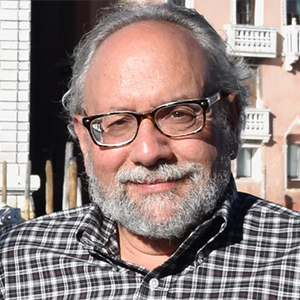
Proteomics reveals new biological insights
The majority of investigations that reveal a deep mechanistic understanding of disease, genetic variation and drug mechanism of action require direct analysis of proteins, their modifications and their interaction partners.
Focused analyses of biological and clinical systems using mass spectrometry–based technologies detect, identify and quantify proteins and their modifications and interaction partners in cells and tissues under drug treatment or development or during disease perturbation. In this way, MS-based proteomics directly measures the impact and integrative consequences of genomic alterations. When these analyses are combined with specific chemistries, researchers gain insights into the mechanism of action of drugs, the identities of potential new therapeutic targets and new biological knowledge.
The three speakers selected by the editorial leadership of Molecular & Cellular Proteomics to present their work at Discover BMB are a mix of early-career and established investigators who are pushing the boundaries of mass spectrometry–based proteomics combined with elegant chemistries to provide new biological and clinical knowledge.

Katherine Donovan is a group leader and lead scientist at the Dana–Farber Cancer Institute. Her focus is on development and application of targeted proteome degradation and on deepening our understanding of the ubiquitin proteasome system for therapeutic purposes. Read more about Katherine Donovan.
Jim Wells is a professor of pharmaceutical chemistry at the University of California, San Francisco. He focuses on understanding and modulating signaling processes in human cells through protein and small-molecule design. He is especially interested in the interprotein circuitry of pathways involved in cell death and inflammation and the intraprotein allosteric circuitry that governs how distant functional sites in one protein communicate. Read more about Jim Wells.
Lan Huang is a professor of physiology and biophysics in the School of Medicine at the University of California, Irvine. Her research focuses on developing and employing novel mass spectrometry–based proteomic strategies for comprehensive analysis of macromolecular protein complexes to define their composition, heterogeneity, modification, interaction and structure. Read more about Lan Huang.
Donovan, Wells and Huang will present their research at a symposium chaired by Steven Carr on Tuesday, March 28, 2:15 to 3:45 p.m., at Discover BMB.
Enjoy reading ASBMB Today?
Become a member to receive the print edition four times a year and the digital edition monthly.
Learn moreFeatured jobs
from the ASBMB career center
Get the latest from ASBMB Today
Enter your email address, and we’ll send you a weekly email with recent articles, interviews and more.
Latest in People
People highlights or most popular articles

Simcox wins SACNAS mentorship award
She was recognized for her sustained excellence in mentorship and was honored at SACNAS’ 2025 National Conference.

From humble beginnings to unlocking lysosomal secrets
Monther Abu–Remaileh will receive the ASBMB’s 2026 Walter A. Shaw Young Investigator Award in Lipid Research at the ASBMB Annual Meeting, March 7-10 in Washington, D.C.

Chemistry meets biology to thwart parasites
Margaret Phillips will receive the Alice and C. C. Wang Award in Molecular Parasitology at the ASBMB Annual Meeting, March 7-10 in Washington, D.C.

ASBMB announces 2026 JBC/Tabor awardees
The seven awardees are first authors of outstanding papers published in 2025 in the Journal of Biological Chemistry.

Decoding how bacteria flip host’s molecular switches
Kim Orth will receive the Earl and Thressa Stadtman Distinguished Scientists Award at the ASBMB Annual Meeting, March 7–10, just outside of Washington, D.C.

Thiam elected to EMBO
He was recognized during the EMBO Members’ Meeting in Heidelberg, Germany, in October.

